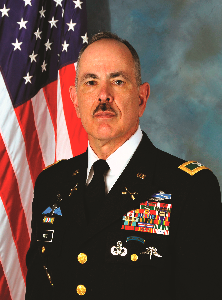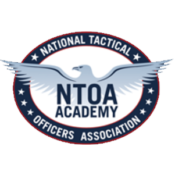This blended (on-line & residency) course is designed to provide an overview of emergency operations center; command post and tactical operations center functions, structure, and operations. Command decision-making through a proven system that streamlines the flow of direction and information will be a central focus of this course.
Learning Objectives
Upon successful completion of this course, the student should be able to understand and describe:
- The Incident Command System and why it works.
- Tactical Command and Command Post Operations.
- Critical Incident Management concepts.
- Review the bios of your instructors.
- Read your textbook as you go through the lectures.
- Download slides for each section as reference material.
- Review all lectures in all sections of the course and complete all associated discussion boards and assignments.
- Write your essay and upload it to the Academy as instructed.
- Take your comprehensive quiz.
 Instructor: Steven R. Watt (Randy) is the President of SRW, Inc., (www.srwsplops.com), a training and consulting business he started in 2008. SRW, Inc. provides Leadership, Business Development, Safety/Security, and Special Operations training and services to select client organizations. Clients of SRW, Inc. include the Swanson Tactical Training Center, Presidio Group, Akirix L.L.C., Northern Wasatch Association of Realtors, OSS Suppressors, Accushape Armor, L.L.C., Morgan and Weber School Districts, numerous U.S. military and law enforcement organizations, and other local and national organizations. Randy holds a Master of Strategic Studies Degree from the U.S. Army War College, a M.B.A. from the University of Phoenix, a Bachelor of Police Science degree from Weber State College, and is a graduate of Session 191 of the F.B.I. National Academy. Randy retired from the Ogden Police Department, Ogden, Utah, in October of 2011. At the time of retirement he was serving as Assistant Chief of Police, with thirty-two years of service in a multitude of assignments and at all levels of supervision and leadership. Chief Watt is a recipient of various medals and commendations, including the department’s Medal of Valor (twice awarded). A long-time member of the Ogden/Metro S.W.A.T. Team, Chief Watt has extensive experience in tactical operations, ranging from high-risk warrant service to hostage rescues. Chief Watt is a nationally recognized expert in the field of law enforcement special operations and counter-terrorism. He is involved with projects supporting the Department of Homeland Security (DHS) and the National Institute of Justice (NIJ). He is an expert witness on Law Enforcement use of force and counter-terrorism. He is a lead instructor for the National Tactical Officers Association (N.T.O.A.) in a variety of S.W.A.T. Leadership and Terrorism courses, and is a regular presenter at the N.T.O.A. Conference, as well as at various state S.W.A.T. Association conferences and training events. He is the past author of the “On Leadership” column for the N.T.O.A’s Tactical Edge magazine. Prior to the 2002 Winter Olympics in Salt Lake City, Utah, then-Lieutenant Watt, was co-chair of the Tactical Response Sub-Committee and spent three years studying terrorism, writing the tactical response plan for protection of the Olympic Games, and conducting security assessments for Olympic venues. Chief Watt has taught hostage rescue tactics and techniques to foreign military and police units and is a consultant to myriad local, state and federal tactical units. He is an instructor at Gunsite Academy in Paulden, AZ. Randy is also a Colonel in the Utah Army National Guard, currently assigned to the Joint Forces HQ. From June, 2011, to December, 2013, he was the Commander of the 19th Special Forces Group (Airborne), commanding 2200 Special Forces soldiers located across 9 states. With 32-years of active duty and reserve Special Forces experience, he is a graduate of numerous Special Operations courses and schools, and is a Master Parachutist and Military Free-Fall Parachutist. Leadership schools include the Infantry Officer’s Basic/Advanced Courses, Combined Arms Service and Support School, Command and General Staff Officer’s Course, and the resident U.S. Army War College. Colonel Watt’s combat service includes year-long tours of Afghanistan, 2001-2002, Iraq, 2006-2007, and Iraq again in 2010 through 2011. All assignments were at leadership levels of counter-terrorism units. As a result of his service, he received the Bronze Star Medal with “V” device for valor in combat, three Bronze Star Medals for meritorious service in combat, the Combat Infantryman’s Badge, the G.W.O.T. Expeditionary and Service Medals, the Afghanistan Campaign Medal with two stars, the Iraq Campaign Medal with three stars, and the Joint Meritorious Unit Award. He was featured in the March, 2003, ABC television special Profiles From the Front Lines, and the August, 2003, issue of Men’s Health magazine. He is the author of “One Warrior’s Creed.”
Instructor: Steven R. Watt (Randy) is the President of SRW, Inc., (www.srwsplops.com), a training and consulting business he started in 2008. SRW, Inc. provides Leadership, Business Development, Safety/Security, and Special Operations training and services to select client organizations. Clients of SRW, Inc. include the Swanson Tactical Training Center, Presidio Group, Akirix L.L.C., Northern Wasatch Association of Realtors, OSS Suppressors, Accushape Armor, L.L.C., Morgan and Weber School Districts, numerous U.S. military and law enforcement organizations, and other local and national organizations. Randy holds a Master of Strategic Studies Degree from the U.S. Army War College, a M.B.A. from the University of Phoenix, a Bachelor of Police Science degree from Weber State College, and is a graduate of Session 191 of the F.B.I. National Academy. Randy retired from the Ogden Police Department, Ogden, Utah, in October of 2011. At the time of retirement he was serving as Assistant Chief of Police, with thirty-two years of service in a multitude of assignments and at all levels of supervision and leadership. Chief Watt is a recipient of various medals and commendations, including the department’s Medal of Valor (twice awarded). A long-time member of the Ogden/Metro S.W.A.T. Team, Chief Watt has extensive experience in tactical operations, ranging from high-risk warrant service to hostage rescues. Chief Watt is a nationally recognized expert in the field of law enforcement special operations and counter-terrorism. He is involved with projects supporting the Department of Homeland Security (DHS) and the National Institute of Justice (NIJ). He is an expert witness on Law Enforcement use of force and counter-terrorism. He is a lead instructor for the National Tactical Officers Association (N.T.O.A.) in a variety of S.W.A.T. Leadership and Terrorism courses, and is a regular presenter at the N.T.O.A. Conference, as well as at various state S.W.A.T. Association conferences and training events. He is the past author of the “On Leadership” column for the N.T.O.A’s Tactical Edge magazine. Prior to the 2002 Winter Olympics in Salt Lake City, Utah, then-Lieutenant Watt, was co-chair of the Tactical Response Sub-Committee and spent three years studying terrorism, writing the tactical response plan for protection of the Olympic Games, and conducting security assessments for Olympic venues. Chief Watt has taught hostage rescue tactics and techniques to foreign military and police units and is a consultant to myriad local, state and federal tactical units. He is an instructor at Gunsite Academy in Paulden, AZ. Randy is also a Colonel in the Utah Army National Guard, currently assigned to the Joint Forces HQ. From June, 2011, to December, 2013, he was the Commander of the 19th Special Forces Group (Airborne), commanding 2200 Special Forces soldiers located across 9 states. With 32-years of active duty and reserve Special Forces experience, he is a graduate of numerous Special Operations courses and schools, and is a Master Parachutist and Military Free-Fall Parachutist. Leadership schools include the Infantry Officer’s Basic/Advanced Courses, Combined Arms Service and Support School, Command and General Staff Officer’s Course, and the resident U.S. Army War College. Colonel Watt’s combat service includes year-long tours of Afghanistan, 2001-2002, Iraq, 2006-2007, and Iraq again in 2010 through 2011. All assignments were at leadership levels of counter-terrorism units. As a result of his service, he received the Bronze Star Medal with “V” device for valor in combat, three Bronze Star Medals for meritorious service in combat, the Combat Infantryman’s Badge, the G.W.O.T. Expeditionary and Service Medals, the Afghanistan Campaign Medal with two stars, the Iraq Campaign Medal with three stars, and the Joint Meritorious Unit Award. He was featured in the March, 2003, ABC television special Profiles From the Front Lines, and the August, 2003, issue of Men’s Health magazine. He is the author of “One Warrior’s Creed.”
Instructor: Ed Allen is a lifelong resident of Seminole County, Florida and holds a Bachelors Degree in Applied Behavioral Science. He is a graduate of the FBI National Academy, Session 242. He worked for the Semino le County Sheriff’s Office for nearly 30 years and held command positions within the agency’s Patrol, Special Operations and Domestic Security Divisions. He retired as the Major over the Department of Law Enforcement. He is a Certified Emergency Manager through the International Association of Emergency Managers. Ed is a Florida certified law enforcement instructor and Adjunct Professor at Seminole State College. Ed is a Lead Instructor and prior Board Member of the National Tactical Officers Association. He also served as Contributing Editor for the Tactical Edge magazine and is currently the NTOA Training Program Manager.
le County Sheriff’s Office for nearly 30 years and held command positions within the agency’s Patrol, Special Operations and Domestic Security Divisions. He retired as the Major over the Department of Law Enforcement. He is a Certified Emergency Manager through the International Association of Emergency Managers. Ed is a Florida certified law enforcement instructor and Adjunct Professor at Seminole State College. Ed is a Lead Instructor and prior Board Member of the National Tactical Officers Association. He also served as Contributing Editor for the Tactical Edge magazine and is currently the NTOA Training Program Manager.
Instructor: Lt. Col. Bob Chabali, Retired Assistant Chief of Police, Dayton Police Department Bob Chabali currently oversees all investigations for the Kettering Health Network after retiring in early 2015 as a 36-year veteran of the Dayton (OH) Police Department where he has served as an operator, team leader and commander of the tactical unit for more than 23 years. His duties included the supervision and management of major tactical incidents, and he consistently served as the primary incident commander. Bob recently retired as the Assistant Chief of the Dayton (OH) Police Department, where he oversaw approximately 410 employees. He instructs internationally for the NTOA in various disciplines, including decision-making in critical incidents, high-risk patrol operations, patrol response to violent-critical incidents, and high-risk tactical operations. Bob serves on the Board of Directors for the National Tactical Officers Association. Bob has a Bachelor’s Degree from The Ohio State University.
Based on the material that you have reviewed in this course, write a one-page paper in APA format, answering this question:
Briefly explain the difference between a Command Post and a Tactical Operations Center.
Please follow these instructions for completing your paper and uploading it to the portal:
Follow the APA writing guidelines.
Name your essay before uploading it: YourLastName_Command_Post_Essay
Save your file on your computer in .pdf or .doc format and then upload below.
[gravityform id=”11″ title=”true” description=”true”][php_everywhere]

